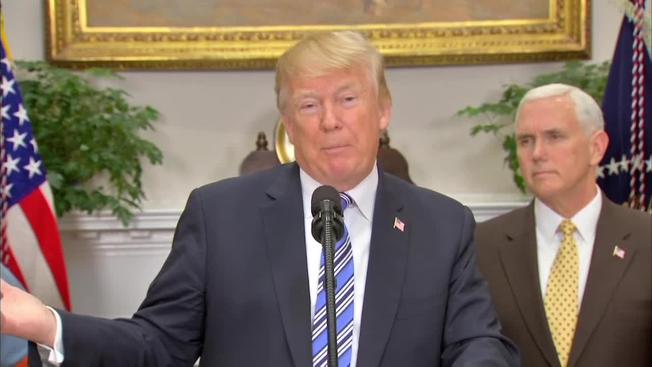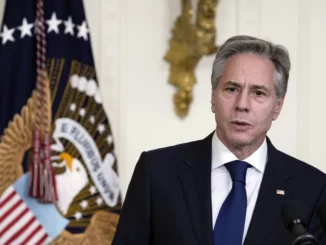
WASHINGTON (TIP): Republicans on Capitol Hill reacted angrily to President Donald Trump‘s announcement Thursday, March 8, that he is going forward with new tariffs on steel and aluminum, arguing that the move will harm the economy and that it threatens to start a broader trade war.
WASHINGTON — Republicans on Capitol Hill reacted angrily to President Donald Trump’s announcement Thursday that he is going forward with new tariffs on steel and aluminum, arguing that the move will harm the economy and that it threatens to start a broader trade war.
And while there are limits to what they can do to stop it, members are contemplating measures that could block the president from fully implementing his proposal.
“I don’t think Republicans will put up with this, and I personally believe that we may be able to stop it in the Congress,” Sen. Orrin Hatch, R-Utah, said.
Sen. Hatch: Trump has ‘been misled’ over tariffs 1:07
The president announced a 10 percent tax on imported aluminum and a 25 percent tax on imported steel, carving out exceptions for imports from Canada and Mexico. But those exemptions weren’t enough to placate congressional Republicans who have traditionally opposed protectionist action on trade.
GOP leaders had lobbied the White House from moving forward, writing letters, speaking out in the media and through outreach to the president and his advisers.
During a conference call between White House officials and GOP Hill staffers Thursday, administration representatives requested favorable comments from members on the president’s plan, a suggestion that the staff in one office laughed at, according to a Republican aide.
In a rare rebuke of the president, Republicans are vowing to continue challenging him in ways that could result in either new legislation or support for expected legal challenges to the move.
“I disagree with this action and fear its unintended consequences,” House Speaker Paul Ryan said. “There are unquestionably bad trade practices by nations like China, but the better approach is targeted enforcement against those practices.”
Senate Majority Leader Mitch McConnell said the exemptions for Canada and Mexico are not enough.
“Members of the Senate, myself included, are concerned about the scope of the proposed tariffs on steel and aluminum and their impact on American citizens and businesses, including many I represent in Kentucky,” McConnell said.
And, outside, EU talked tough. “If Donald Trump puts in place the measures this evening, we have a whole arsenal at our disposal with which to respond,” European Financial Affairs Commissioner Pierre Moscovici said.
Counter-measures would include European tariffs on US oranges, tobacco and bourbon, he said, adding that some products under consideration for an EU riposte were largely produced in constituencies controlled by Trump’s Republicans. “We want Congress to understand that this would be a lose-lose situation,” Moscovici told BFM TV.
The EU is by far the biggest trading partner of the United States by value and, after China, member states have together the biggest trade surplus with the country. Once approved by Trump, the tariffs would go into effect after two months.
In Beijing, Foreign Minister Wang Yi said history showed that trade wars were not the correct way to resolve problems. “Especially given today’s globalization, choosing a trade war is a mistaken prescription. The outcome will only be harmful,” he said on the sidelines of an annual meeting of China’s Parliament.





Be the first to comment